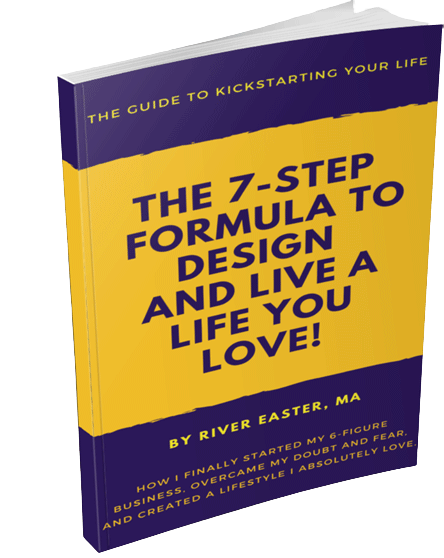You’re sitting in front of the computer, pondering “Should I hit the Submit button? This is what I’ve been dreaming about. It’s been on my bucket list. If I don’t do it tonight, it’s not going to be available tomorrow morning. It’s now or never . . . but dang. If I do submit, what if I change my mind? And all the work involved . . . Will I follow through? Can I do it?”
Can you relate to this scenario?
We are so afraid of making the “wrong” decision, we don’t make any at all—decisions by default.
Why is decision-making so difficult?
Many of us struggle with making decisions, even small ones like which movie to see or what to order off a menu. How many times have you been faced with a decision, looked to a friend or family member, and asked what they thought?
The truth is you know how to make effective decisions, but you have been trained or conditioned to look outside yourself for the answers, rather than within.
A large number of us have never been taught how to make decisions. For example, our parents made decisions for us even long after we had the ability to make decisions for ourselves. This decreased our confidence in our ability to make decisions that were good for us.
We are taught or conditioned to make decisions to please others.
Have you ever made a decision because you felt obligated to another person and then you come to find out they completely forgot about it? They moved on, and you were left holding the bag.
We have been conditioned to make decisions to get others’ approval, to make others happy, to make decisions based on what we think will get us love from friends and family, or what others think we should do.
It is important to make decisions that are good for you—not others. Remember this saying when making a decision for yourself: “The truth for you isn’t the truth for everybody.”
Another pattern in decision-making is spending days, weeks, possibly even months agonizing over a decision. You tell yourself, “I don’t know what to do.”
Making decisions brings up old patterns like self-doubt, lack of confidence that you have what it takes, and fear of failure. Then you get stuck and stay in a limbo-land of indecision—the land of suffering.
“The greatest mistake we make is living in constant fear that we will make one.”
—John Maxwell
Decision-making is critical to creating a successful life—the life meant for YOU!
All results in your life started with a decision—the willingness to commit. A decision to go to college, apply for a job, choose a career, give your love, or give your time and attention. They all begin with a decision.
H. Murray wanted to climb Mount Everest, and he was invited several times to climb with Sir Edmond Hillary. The first time he couldn’t get past the cost of the expedition and declined the invitation. He eventually said yes and made a down payment. From his experiences he wrote a book, and his quote is famous because it holds a deep truth we all recognize.
“Until one is committed, there is hesitancy, the chance to draw back, always ineffectiveness. Concerning all acts of initiative (and creation), there is one elementary truth, the ignorance of which kills countless ideas and splendid plans: that the moment one definitely commits oneself, then Providence moves too. All sorts of things occur to help one that would never otherwise have occurred . . . Whatever you can do, or dream you can, begin it. Boldness has genius, power, and magic in it!”
Five steps to becoming an effective decision-maker
- Create a vision—write down your vision and goals. Focus on what you want, not on how you will get there. Most of us are trained to figure out what we want based on how we think we can get there. It is limited to our own limited thinking and experience. It’s based on our past and our circumstances, not on our potential. It is a limited, watered-down version of ourselves. Practice noticing what you are interested in. Your longings and desires. Ask yourself, “If anything were possible, what would I love my life to look like in three years?”
- Be your own counsel. Ask yourself, “What would I love?” Don’t ask others for their opinions. Opinions are different from educating yourself, doing your own due diligence.
- Learn to make decisions quickly. It is empowering to say yes or no to an opportunity. Not making decisions or letting others or circumstances make our decisions is really the decision to fail. It sends a message to ourselves that we don’t know what’s best for us. It erodes our confidence. It is the opposite of the truth. You are the only one that knows what’s best for you (see step 2).
- Start small. Practice making small decisions quickly. What to order off the menu. When to go to the gym. What to wear in the morning. When you hear yourself saying, “I don’t know,” press the Pause button and replace with “I do know what I want” or “If I did know what I want, what would it be?”
- Start now! We are conditioned to have everything perfect before we start. When this happens, it starts a syndrome. Transformation doesn’t work that way. Conditions will never be perfect. Aristotle Onassis said, “We must free ourselves of the hope that the sea will ever rest. We must learn to sail in high winds.” Meaning there will never be optimal conditions to start. It’s important to take a step right now, despite the conditions.
“Once you make a decision, the universe conspires to make it happen.”
—Ralph Waldo Emerson



